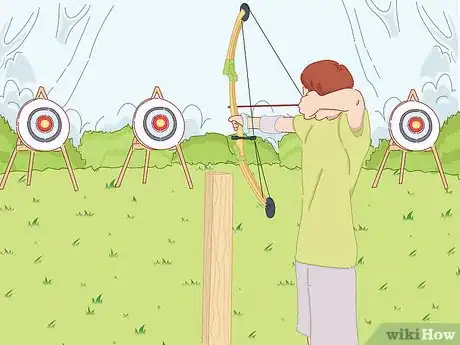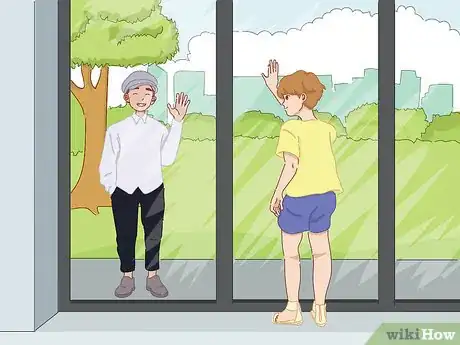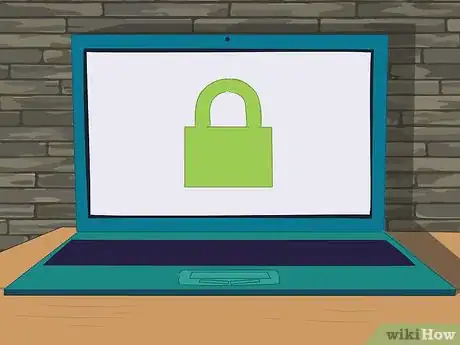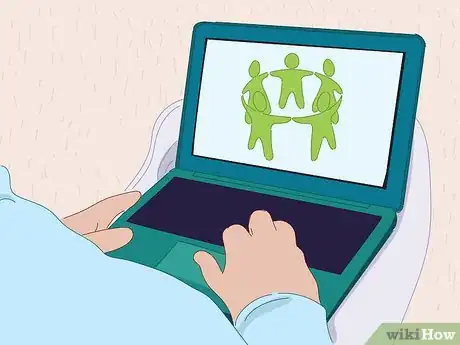X
This article was co-authored by wikiHow Staff. Our trained team of editors and researchers validate articles for accuracy and comprehensiveness. wikiHow's Content Management Team carefully monitors the work from our editorial staff to ensure that each article is backed by trusted research and meets our high quality standards.
This article has been viewed 76,931 times.
Learn more...
Don't believe the stereotype about socially awkward homeschoolers. Homeschooling gives students the chance to join all sorts of activities that a full school day doesn't leave time for. Take advantage of this to broaden your horizons and meet new people. Plus have time to meet new friends.
Steps
Method 1
Method 1 of 2:
Making Friends
-
1Get involved in activities. Go out and do what you love to do, and you'll meet people with similar interests. Youth groups, 4-H, summer camps, volunteer centers, churches, and community centers are all good places to start. If you're already passionate about sports, music, acting, or other extracurricular activities, make an effort to talk to the people you meet in those contexts.[1]
- Most schools allow local homeschoolers to join after-school activities.
-
2Meet other homeschoolers. Most homeschoolers have a flexible schedule compared to a regular school day. If you're bored while your other friends are at school, find other homeschoolers so you can visit them during the day.
- If you don't know any other homeschoolers, search online for homeschooling groups and co-ops in your area. Your local librarians may be able to help you find them as well.
Advertisement -
3Learn with other people. Homeschooling families often meet for group classes once in a while. This lets each parent teach the subject he's good at, and lets the students help each other on their work. Group field trips are another great way to meet people during "school" time.
- If you can't find a homeschooling group, look at public schools, churches, and community centers. Some of these offer classes that anyone can join.
-
4Keep in touch with old friends. If you used to be in a regular school, you might have friends from that time. Don't let good friendships fall apart just because you don't see each other every day. You can still spend time together on the weekends, and talk to each other on the phone.[2]
-
5Develop independence. If you feel like you aren't getting enough socializing time, have a conversation with your parents to see if you can figure out a solution. If you are responsible and old enough, they may give you more freedom to leave the house on your own. Teenagers especially should consider the following:
- A driver's license or bicycle gives you the ability to go out on your own schedule.
- Getting a part-time job can lead to new friends among your co-workers. It also shows your parents that you are ready for independence.
-
6Be friendly, but be smart. Homeschoolers often meet people with a wide range of ages and backgrounds. Ask your parents if it's okay to talk to the strangers you meet at different activities. Their answer will depend on your age and the community you live in. Follow your parents' rules, and remember not to give out your personal information (such as your last name, address, or telephone number) to someone you just met.
Advertisement
Method 2
Method 2 of 2:
Talking to People Online
-
1Stay safe. The internet is a great tool for socializing, but it can be dangerous as well. To avoid predators and scams, follow these rules whenever you talk to people online:
- Never use your real name with strangers. If a website requires your real name, you should only use that site to talk to friends you know in real life.
- Never tell anyone the name of the town you live in, your phone number, or other personal information.
- Avoid unmonitored chat rooms, dating apps, and apps that put you in contact with random users.
- Do not reply to suspicious emails.
- Follow any rules your parents set about internet use.
-
2Join communities that share your interests. There are online forums and social media sites for just about every topic. These are great places to connect with people who enjoy talking about the same things you do.[3] If you find a site about your sport or hobby, ask its members for advice on how to improve or learn more.
-
3Create your own content. You can start your own blog, make your own crafts to sell on Etsy, or (if your parents don't mind) make your own videos. Maybe you can earn class credit for one of these projects — or keep it as something you do for fun.
Advertisement
Community Q&A
-
QuestionWhat if I had the chance last year to go to summer camp and make friends, but I said no?
 Community AnswerYou can't change the past, but you can make different choices in the future. Maybe go to camp the next time you have an opportunity, or find a different way to make friends.
Community AnswerYou can't change the past, but you can make different choices in the future. Maybe go to camp the next time you have an opportunity, or find a different way to make friends. -
QuestionThey don't make teams or social groups about the things I'm passionate about, nor am I interested in online endeavors. What should I do?
 Community AnswerStart your own. There are usually email groups for homeschoolers that you can reach out to so you can spread the word.
Community AnswerStart your own. There are usually email groups for homeschoolers that you can reach out to so you can spread the word. -
QuestionWill things be weird to other people if I was gone for a year?
 Community AnswerMaybe, but just jump right in. Just introduce yourself and make friends.
Community AnswerMaybe, but just jump right in. Just introduce yourself and make friends.
Advertisement
Warnings
- Don't change who you are for other people. Many kids (especially ones in regular school) try to fit in with the popular crowd even when it doesn't make them happy. Finding people who enjoy the same activities as you will lead to better, healthier friendships.⧼thumbs_response⧽
Advertisement
References
About This Article
Advertisement

































































